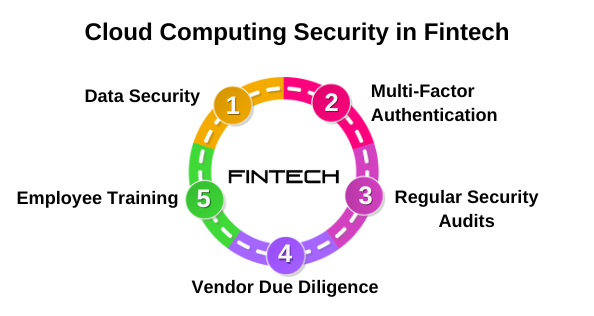
HOW CLOUD COMPUTING HAS CHANGED THE FACE OF MODERN DAY FINTECH OPERATIONS
Cloud
computing is an umbrella term used for the delivery of computing services over the
Internet, rather than the traditional method of providing computing resources via a
client-server approach. This method is used by many fintech industry players and banks
because of the benefits offered by cloud technology.
Fintech: A Revolution in Technology
Fintech startups
have been disrupting the financial service industry over the last couple of years and have already
changed the way we pay for things. With the emergence of mobile phones as an all-in-one device, the
need to carry large amounts of cash or a bulky wallet has reduced. Of course, one can argue that the
cards still have a long way to go, but the fact is that the number of payments made with cards is
growing steadily and the level of trust in transactions is increasing. The need to carry cash is
reducing, and the card is the preferred mode of payment for many. However, the current form of
payment is slow and expensive, and that’s where the financial technology
(fintech) industry comes into play. The growth of fintech over the last couple of years has
been phenomenal, and the payments industry is one of the areas that has been disrupted. This blog is
an attempt to understand some of the digital payment trends in 2022.

Cloud computing and its impact on fintech.
Cloud computing has had
a profound impact on the financial technology sector. By allowing businesses to access powerful
computing resources on demand, cloud computing has made it possible for fintech companies to develop
and deploy sophisticated applications quickly and cost-effectively. This has helped to accelerate
the pace of innovation in the sector and has made it possible for new players to enter the market
and challenge established incumbents.
The cloud has also enabled fintech companies to offer their services on a pay-as-you-go basis, which
has made them more accessible and affordable for consumers and businesses alike. This has helped to
drive the adoption of fintech services and has made them an integral part of the financial services
ecosystem.
Looking to the future, it is clear that cloud computing will continue to play a pivotal role in the
development of the fintech sector. With the help of the cloud, fintech companies will be able to
continue to innovate and bring new and exciting products and services to market.
User’s data storage issue is a history now.
Cloud technology has
been a game-changer for the financial technology (fintech) industry. One of the biggest challenges
faced by fintech companies has been data storage. Financial data is sensitive and needs to be stored
securely. The cloud has made it possible for fintech companies to store data securely and access it
from anywhere in the world. This has made fintech companies more agile and efficient. Cloud
technology has also made it possible for fintech companies to offer new and innovative services to
their customers.
Fintech users have long struggled with data storage issues. The desirable cloud computing data
storage facility has made sure that those issues are now a thing of the past. With cloud technology,
users can store their data securely and access it from anywhere in the world. This is a huge
advantage for fintech users, who can now use their data to make better financial decisions.
The data of fintech users are now more secure with Cloud Computing Technology

With the
advent of cloud computing technology, the data of fintech users is now more secure than ever
before. This is because cloud computing technology provides a number of security features
that were not available with traditional data storage methods. For example, cloud computing
technology allows the encryption of data, which ensures that only authorized individuals can
access it. Additionally, cloud computing technology provides for the storage of data in a
secure and isolated environment, which further protects it from unauthorized access.
Conclusion
Cloud computing and AI are the future of fintech businesses, allowing faster risk assessment and making better investments faster and more efficiently for companies. We have seen its implementation in a number of different industries, and now we are seeing its implementation in fintech. Cloud computing technology is the next step to innovation in fintech. This is because cloud computing allows the fast-moving nature of financial institutions to keep up with the pace of technology, and it has brought a revolution in the cost of implementation. In traditional systems, the cost of implementation is too high. But in cloud computing, the cost of implementation is much less than in the former. It provides full security for the data. The disaster recovery process is also very easy. Cloud computing is useful for small and large businesses, and it has already made great changes to the world of fintech.